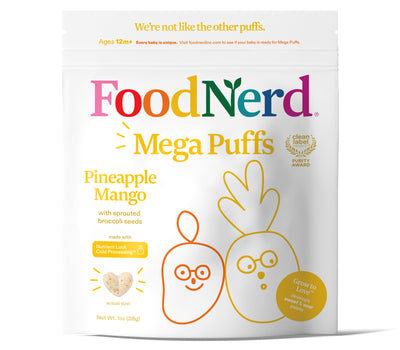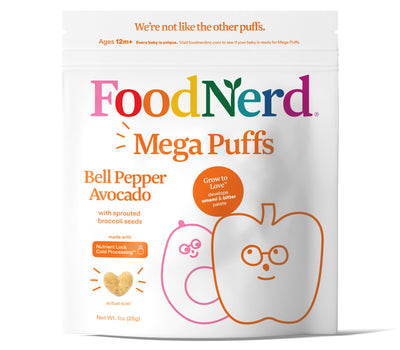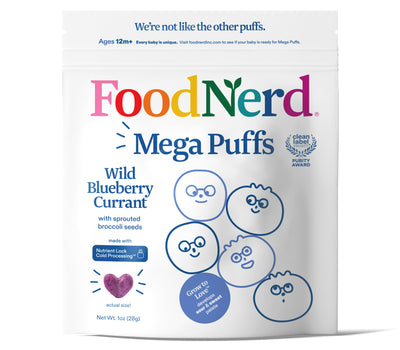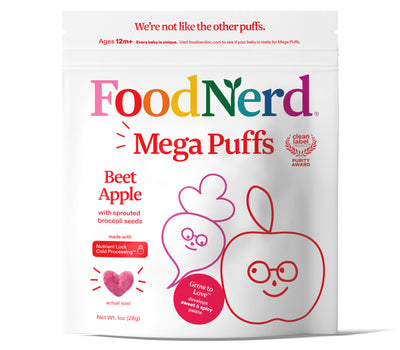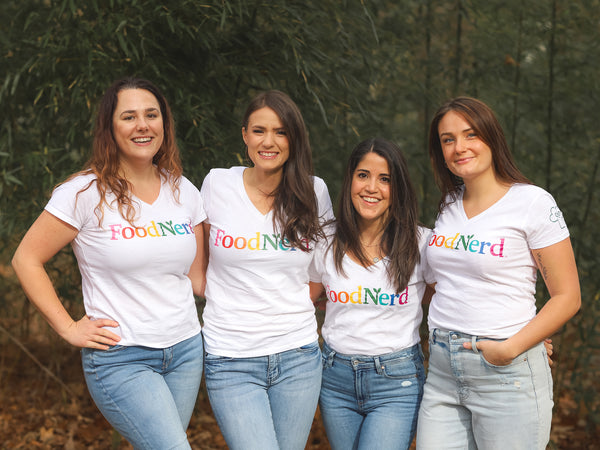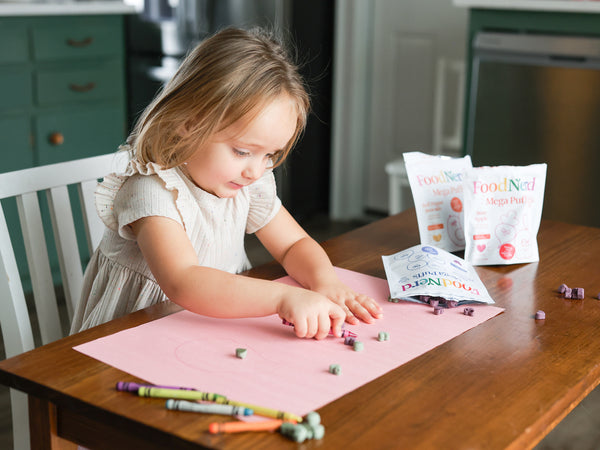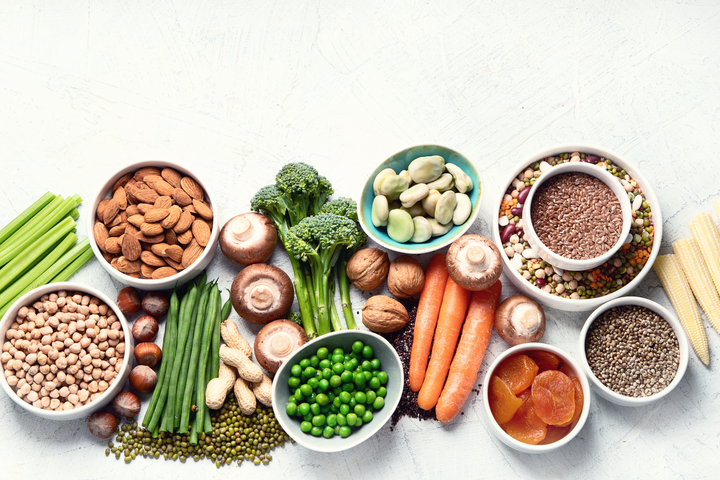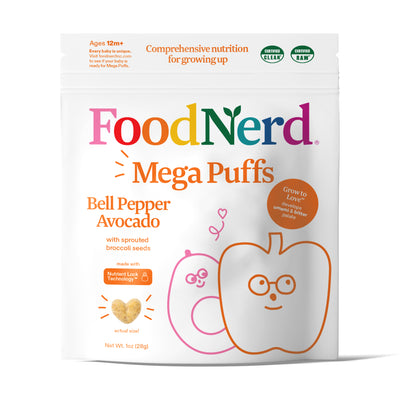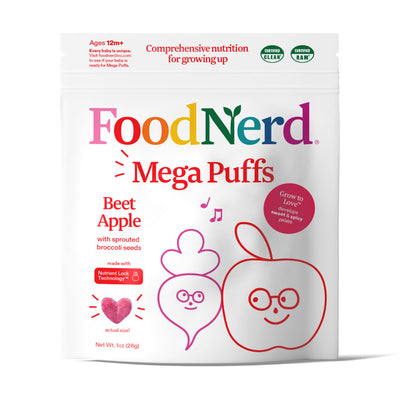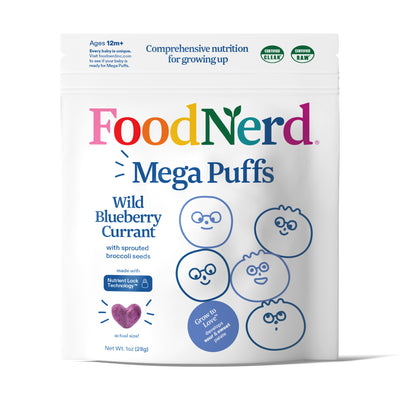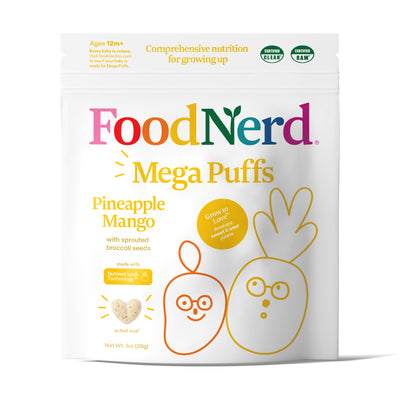When your little one is feeling under the weather, you may be asking what to feed a sick toddler. The right foods can help support their immune system, provide comfort, and give their body the nutrients it needs to recover. From soothing fluids to easy-to-digest meals, this guide will walk you through what to feed your young child during illness, so they can get back to their playful selves as quickly as possible.
Understanding Your Sick Toddler's Nutritional Needs
When toddlers fall ill, their appetite may decrease, making it difficult to get them to eat. It’s normal for them to be more picky and less interested in food, which is why understanding what to feed a sick toddler can be challenging. Their digestive systems may not be working as efficiently, so offering foods that are easy on the stomach is key.
It’s important to set realistic expectations. Your toddler may refuse food one day and eat a little the next. This inconsistency is normal when they’re sick, so don’t stress about how much they’re eating. Focus on offering small, nutritious options and keeping them hydrated.
Proper nutrition plays a crucial role in the healing process. The right foods can help boost their immune system, keep their energy up, and even speed up recovery. Vitamin C, zinc, and vitamin A are important nutrients that help your toddler’s body fight illness. Focus on offering foods like oranges, sweet potatoes, eggs, and leafy greens to provide these immune-boosting nutrients.
Hydration: The Top Priority for Sick Toddlers
During illness, staying hydrated is often more important than focusing on food. Fluids help maintain energy levels and prevent dehydration, which can be especially dangerous when your toddler has a fever or stomach issues.
Signs of Dehydration to Watch For
Dehydration can be serious, especially in young children. Keep an eye out for signs like dry mouth, reduced urination, or lethargy.
Water, clear broth, and electrolyte solutions are the best options for keeping your toddler hydrated. Avoid sugary drinks, as they can worsen dehydration. Some foods, like watermelon, cucumber, or soup, can also help as they offer a refreshing boost when your toddler isn’t interested in drinking.
A homemade electrolyte solution made from water, a pinch of salt, sugar, and a little orange juice can help replenish lost fluids and electrolytes. It’s a simple, effective solution when your toddler refuses store-bought options.
Frozen popsicles made from diluted fruit juices or smoothies are another fun way to help your toddler stay hydrated and cool down.
Meal and Snack Ideas Based on Symptoms
Upset Stomach
When your toddler has an upset stomach, it’s important to focus on gentle, easy-to-digest foods.
When feeding a sick child, the BRAT diet may come to mind. And no, we're not talking about poor behavior—BRAT stands for Bananas, Rice, Applesauce, and Toast. These foods are often recommended for kiddos with stomach issues because they're bland, gentle, and easy to digest. As an added bonus, the BRAT diet can help bind stool and reduce irritation in the gastrointestinal system.
In addition, plain crackers, boiled potatoes, and cooked carrots are all great options that won’t upset your toddler’s stomach. Porridge or oatmeal can be made for toddlers who need something soft, warm, and easy to eat. You can add some mashed fruit for extra flavor and nutrients.
Probiotics can help restore healthy gut bacteria after a stomach illness. Foods like yogurt or kefir can be introduced, but always check with your pediatrician first.
Cold, Flu, and Respiratory Illnesses
When your toddler has a cold or flu, try focusing on foods that are both comforting and immune-boosting.
Although vitamin C is essential for immune health, it’s best to get it from whole foods like citrus fruits and berries rather than supplements. Vitamin C-rich fruits like oranges, strawberries, and kiwi, along with zinc-rich foods like chicken or beans, can help support your toddler’s immune system.
If your toddler has a sore throat, opt for warm, soft foods like mashed potatoes, oatmeal, or scrambled eggs to soothe irritation.
Warm liquids such as broth or herbal tea can help provide hydration and comfort while clearing nasal congestion.
Fever Management
When your toddler has a fever, it’s essential to offer foods that are easy to digest and hydrating.
Chicken soup is a great choice when your toddler has a fever. It’s soothing, hydrating, and packed with nutrients that can help boost recovery.
A smoothie with yogurt, banana, and spinach provides protein, fiber, and vitamins, giving your toddler a quick nutrient boost. It can also help to cool them down.
Practical Feeding Strategies for Sick Toddlers
A relaxed, comfortable mealtime environment can make a big difference when your toddler isn’t feeling their best. Let them eat on their own terms—whether that’s in front of the TV or while resting in bed.
Offer smaller portions more frequently throughout the day. This allows your toddler to get some nutrition without overwhelming them when they don’t feel like eating much.
Try making food visually appealing by cutting it into fun shapes or offering it alongside something they enjoy, like a favorite stuffed animal or blanket.
If your toddler refuses food, don’t pressure them. Their body is likely still focused on recovery, and forcing them to eat could create negative associations with food. When food refusal happens, try to stay calm and offer smaller, more frequent meals, or focus on fluids to keep them hydrated and nourished.
Common Food Myths During Illness
Should You "Starve a Fever, Feed a Cold"?
The old saying “starve a fever, feed a cold” is a myth. It’s important to nourish your child properly, regardless of the type of illness. When you’re deciding what to feed a sick toddler, you should always be aimed at hydration and easy-to-digest, nutrient-rich foods.
Is Dairy Safe During Illness?
Dairy is generally fine unless your toddler has a specific intolerance. It can even provide needed calories and protein during sickness.
Do Sugary Foods Help or Harm?
While sugary foods may give a short-term energy boost, they don’t offer nutritional benefits. Focus on foods that support immune health and hydration instead.
When to Seek Medical Help
Dehydration is a serious concern during illness. Watch for signs like a dry mouth, fewer wet diapers, or irritability, and contact your doctor if dehydration seems to be setting in.
If your toddler refuses to eat for more than 24 hours or struggles with swallowing, it may be time to contact your pediatrician.
If you have any concerns about your toddler’s illness or their inability to eat or drink, don’t hesitate to call an expert. Your pediatrician can help you decide what to feed a sick toddler based on their specific symptoms. Don’t be afraid to ask for advice if you’re ever unsure.
Recovery Phase: Returning to Normal Eating
Once your toddler is feeling better, gradually reintroduce regular foods to avoid overwhelming their sensitive stomach.
Again, appetite loss is common during illness. It may take a few days for your toddler to get back to their regular eating habits, so be patient and keep offering light, nutritious meals. After an illness, support your toddler’s gut health by offering foods with probiotics, such as yogurt, and fiber-rich options like bananas.
Final Thoughts
Having an under the weather kiddo is tough. Be sure to have a stock of easy-to-digest foods, electrolyte solutions, and comforting snacks on hand for when your toddler isn’t feeling their best.
Keep this handy guide for quick reference on what to feed a toddler when sick based on the specific illness. This will help you make informed food choices quickly during a stressful time.
By focusing on small, nutritious meals and plenty of hydration, you can help ease their recovery. With a little patience, the right foods, and a lot of TLC, your toddler will be back to their energetic self in no time.
For more healthy meals for toddlers, check out this blog post.
Frequently Asked Questions
How Long Can a Toddler Go Without Eating When Sick?
Generally, toddlers can go a couple of days without eating, especially if they’re hydrated. Keep offering small amounts of food and plenty of fluids.
Should I Give My Toddler Supplements During Illness?
Unless recommended by your pediatrician, supplements are usually unnecessary. Focus on whole foods that provide the nutrients they need.
Are There Foods That Speed Up Recovery?
There’s no magic food that will speed up recovery, but a diet rich in vitamins and hydration can help your toddler recover faster.
How Do I Get My Toddler to Take Medicine with Food?
If your toddler needs medicine, mix it with a small amount of food or drink they like to mask the taste.
Can I Still Breastfeed My Toddler When They're Sick?
Yes! If your child is still breastfeeding, it is beneficial during sickness, as it provides hydration, comfort, and immune support.
